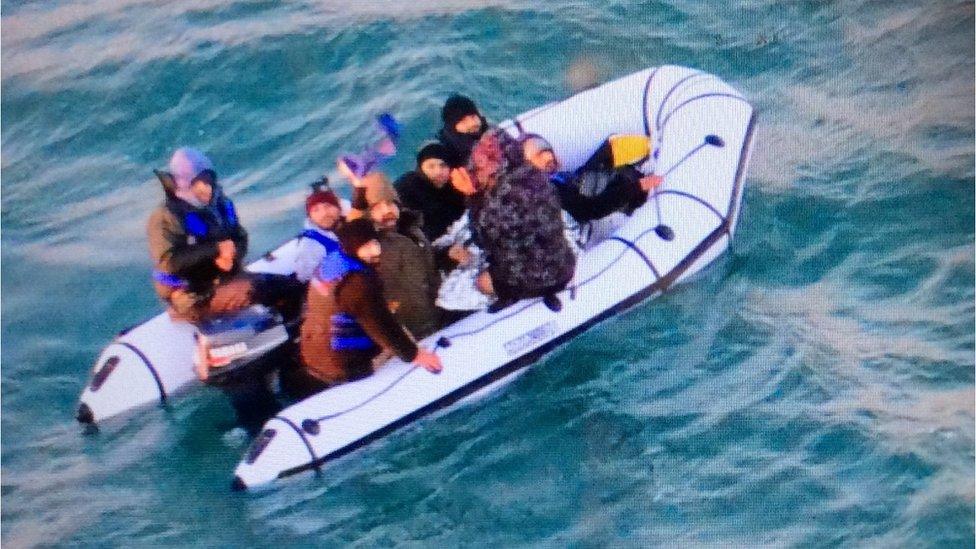Brexit: Government defeated by peers over child refugees
- Published
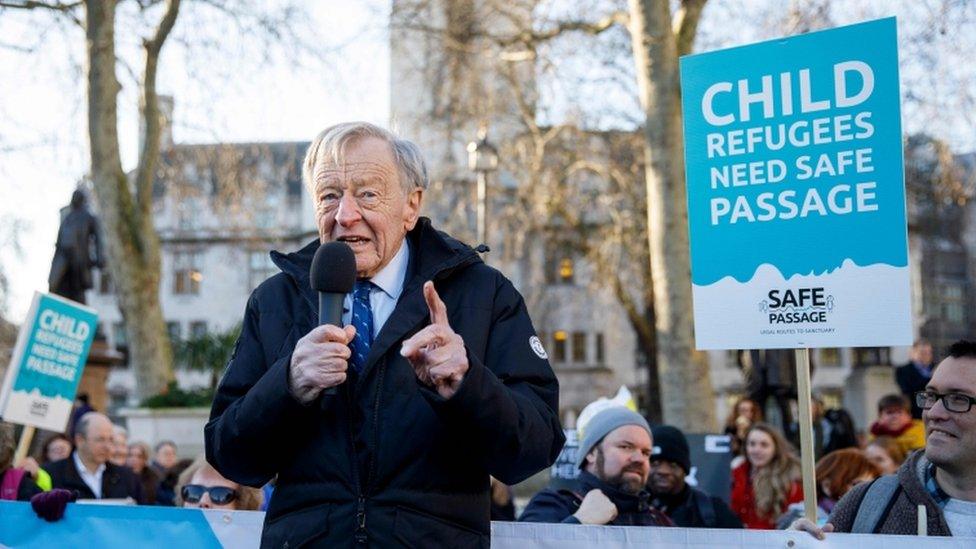
Lord Dubs - who proposed the amendment - came to the UK on the Kindertransport to escape the Nazis
The government has lost another vote in the House of Lords over its Brexit legislation - this time on the issue of child refugees.
Peers supported Lord Dubs' amendment to protect the rights of refugee children to join their families in the UK after Brexit.
The government insisted it was "intent" on protecting family reunification.
It will seek to reverse the change - and others voted for on Monday - when the bill returns to the Commons.
With an 80-strong majority of MPs, the government is likely to get its way.
The Brexit bill - officially called the EU (Withdrawal Agreement) Bill - ensures the UK leaves the EU on 31 January with a deal.
It was approved by MPs without amendment but has faced a tougher battle in the House of Lords.
On Monday, peers defeated the government on EU citizens, EU Court of Justice rulings and court independence.
The passage of the Dubs amendment - by 300 votes to 220 - was the government's fourth defeat, and a short time later it suffered a fifth.
That vote - lost narrowly by 239 to 235 - alters the bill so it makes note of the Sewel Convention, under which Parliament should not legislate on devolved issues without the consent of the devolved institutions.
What is the Dubs amendment about?
A previous version of the Brexit bill required the government to seek agreement with the EU to ensure that unaccompanied children could continue to come to the UK to join a relative.
However, following Boris Johnson's election victory, this guarantee was weakened, instead only requiring the government to make statements to Parliament on the subject after Brexit.
Lord Dubs - who came to the UK as a child to escape the Nazis - put down the amendment seeking to reinsert the original commitment.
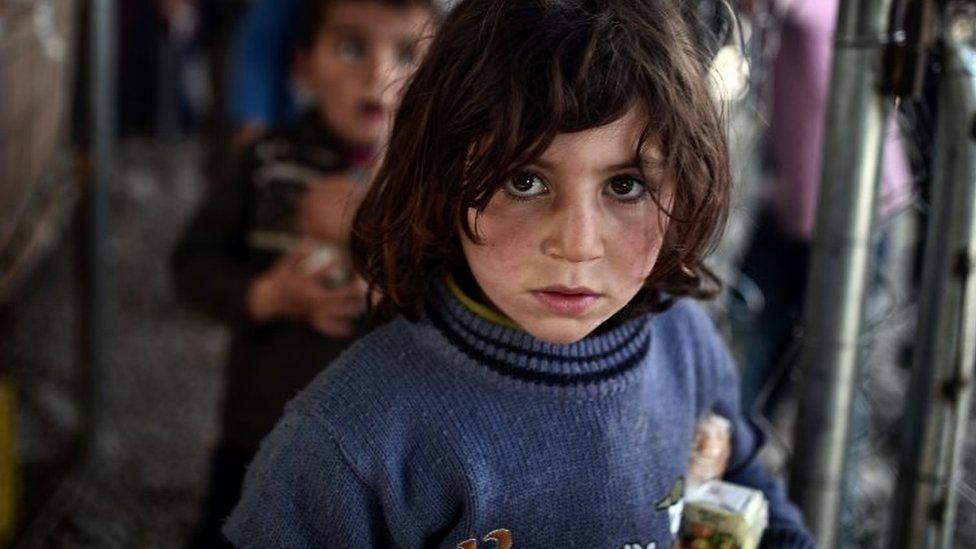
The government says more than 41,000 children have been given protection in the UK since 2010
Speaking during the debate, he urged the government not to "close the door" on refugee children, arguing that offering a safe, legal route into the UK would "thwart the traffickers".
"I believe we are essentially on the side of public opinion and on the side of humanity," he argued.
Supporting the Labour peer's amendment, Liberal Democrat Baroness Hamwee said her party "will not stand by while the Conservative government uses Brexit to undermine the UK's proud tradition of providing sanctuary to some of the world's most vulnerable people".
And the Bishop of Durham called the issue a "moral bellwether for the future of our country".
"We want to be known as a country that is welcoming and passionate and committed to playing our full part in responding to the deep issues that arise from the reality of refugees around the world," he added.
What has the government said?
Arguing against the amendment, Baroness Williams of Trafford insisted the government was committed to supporting vulnerable children, adding: "No one group has the monopoly on humanitarianism."
Defending the government's record, she said more than 41,000 children had been given protection in the UK since 2010.
Ministers say they are "intent" on reaching a deal with the EU on family reunification, but do not want an obligation to negotiate on the matter included in the Brexit bill.
They have promised to protect the rights of refugee children in a separate, as yet unseen, immigration bill.
What happens now?
A Downing Street spokesman said the government was "disappointed" by the defeat and confirmed it would not accept the amendment.
"Protecting vulnerable children will remain our priority after Brexit - and the Withdrawal Agreement Bill reaffirms our commitment while clarifying the role of parliament and government in negotiations."
The bill is expected to pass the House of Lords and will then return - with amendments - to the House of Commons.
In all likelihood, MPs will reject the changes and send the bill back to the Lords - a parliamentary process known as ping pong - but ultimately, the government is expected to get its way.
Following his victory, Lord Dubs tweeted: "It's now the turn of the Commons to show what they're made of."
- Published8 January 2020
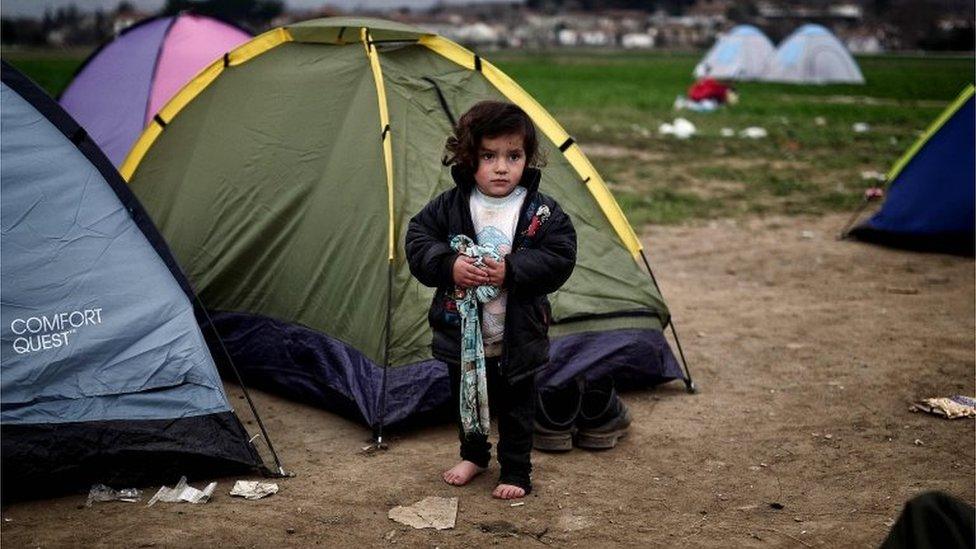
- Published21 January 2020
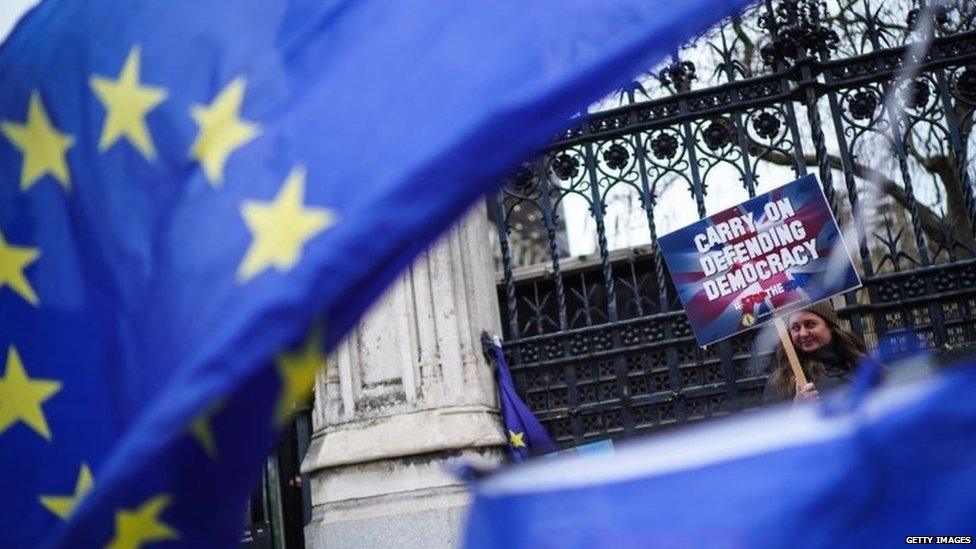
- Published23 January 2020
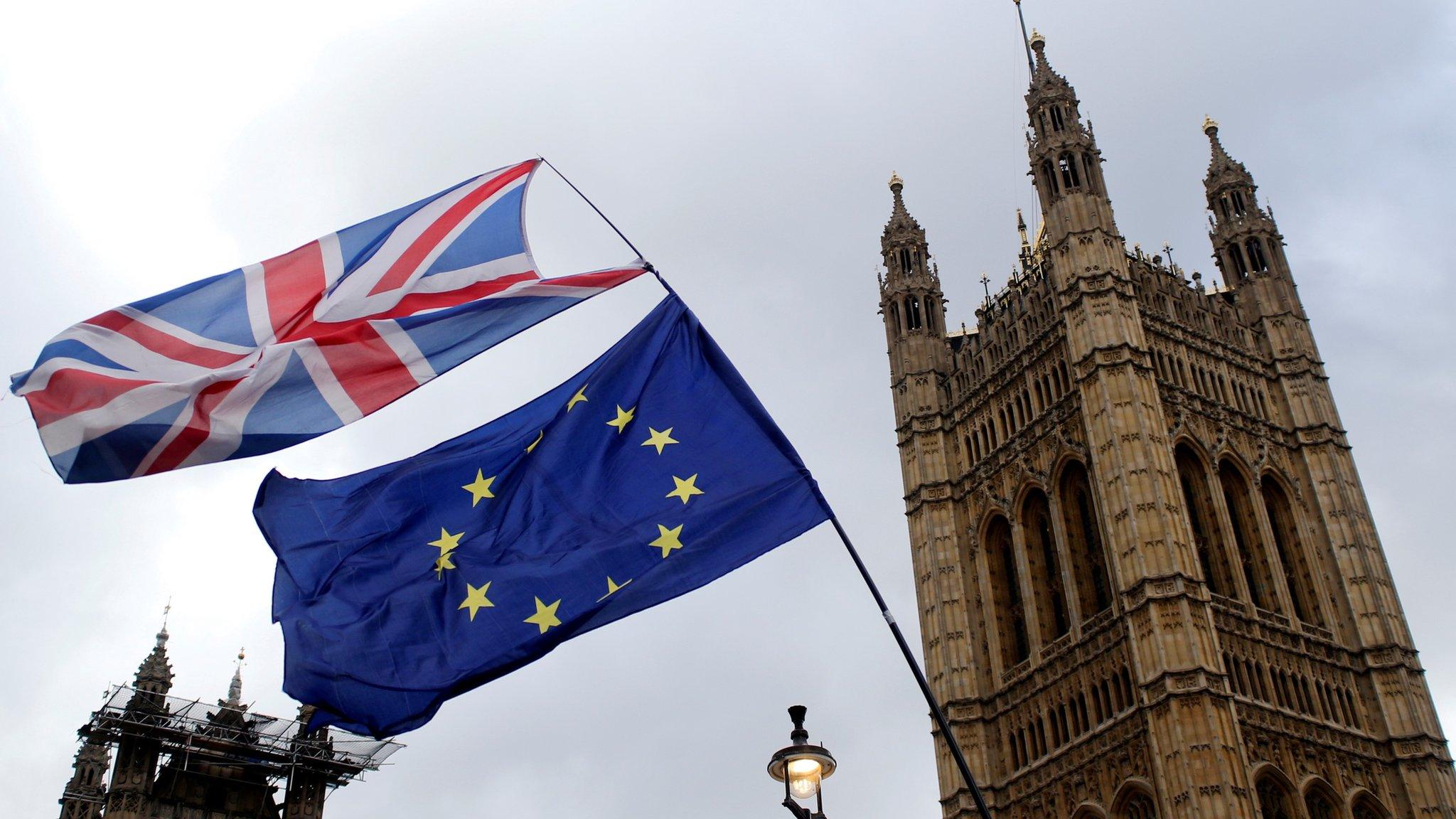
- Published20 January 2020
